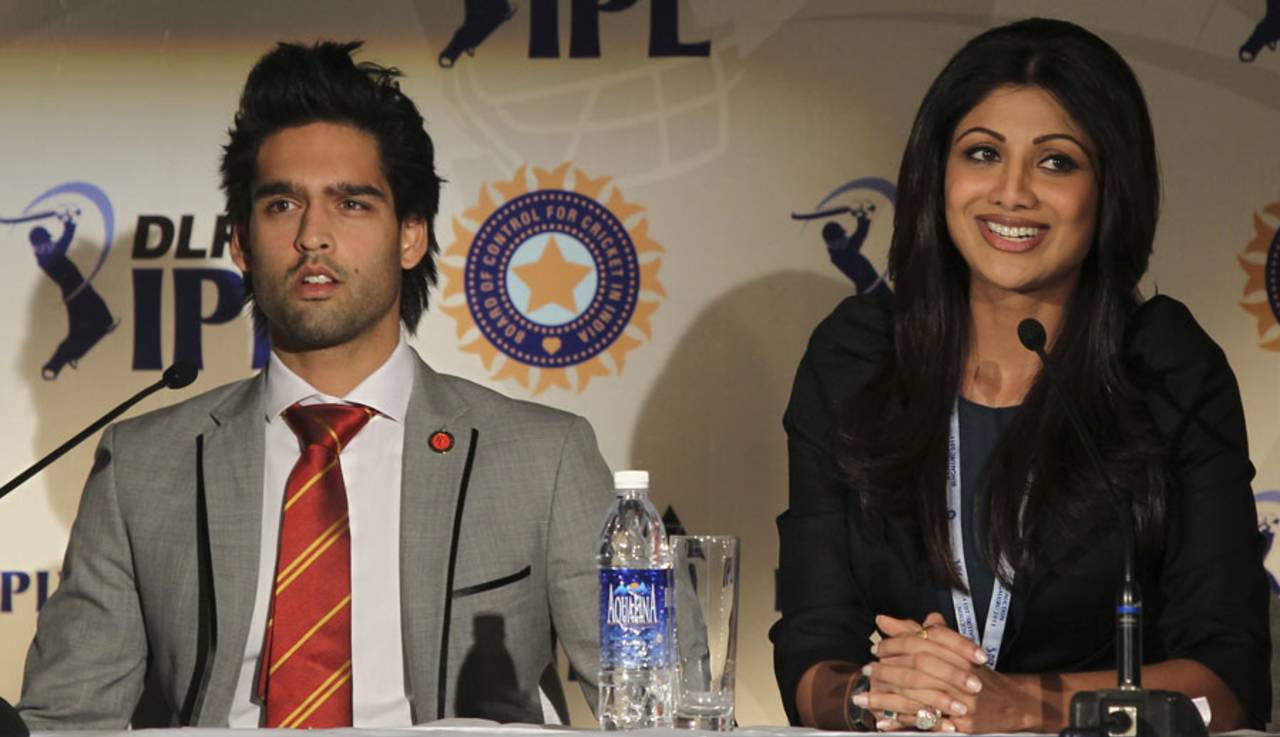Cricket's great board game
It's called IPLopoly. And it's televised
Andrew Hughes
12-Feb-2014

"Overweight 40-year-old English opening bat who bowls dibbly dobblies? Wench, hand me my paddle" • AFP
There is nothing like a board game to bring people together. In our family, Monopoly was the pastime of choice. I remember one particular game during the Christmas holidays. It started in cordial fashion, just after lunch, with a little light conversation, a jovial choosing of pieces and a few rounds of innocent dice-rolling, property-acquiring fun.
By mid-afternoon, things were getting a little fraught as my brother had turned Fenchurch Street Station into a casino-leisure-hotel-complex and was charging ten times the market rate if you landed on it; my mother and father were involved in a messy legal dispute over the naming rights to Marylebone, and I had resigned as owner of the Water Works.
By the evening, I was in jail, having fallen foul of the complex rules regarding franchise ownership, my father had gone bankrupt and been expelled from the game for defaulting on a bank guarantee, my mother had been suspended because of irregularities concerning alleged bribes connected with the purchase of Pentonville Road, and my brother had appointed himself head of a Monopoly enquiry to investigate in-game wrongdoing.
It was great fun.
The beauty of Monopoly is that it easily translates to other countries. The Indian version - IPLopoly - has been particularly successful.
The first act in a game of IPLopoly is to choose your team. Several years ago, I wrote a letter to Lalit Modi outlining the potential for a cricket-Monopoly crossover by naming IPL franchises after the famous playing pieces. Sadly he lacked my vision. The Chennai Irons, the Bangalore Little Yappy Dogs, and the Kolkata Top Hats never came to be; the sizeable Monopoly demographic remained unwooed, and Lalit had to flee the country.
The rules of IPLopoly are simple. As with Monopoly, players start off with an enormous pile of pretend money, but in this version, they have to spend it on cricketers. The available cricketers are divided into categories: Superstar Opening Batsmen, Wild Late-Order Sloggers, One-Innings Wonders, Third-Rate Australians, Forlorn-Looking Englishmen, Medium-Paced Cannon Fodder, Elderly Gold-Diggers and so on.
Players should take care. For example, every time you buy an English cricketer (which, admittedly, isn't very often) you have to take a Chance card. This can have any instruction on it, but will almost always say: "Player not available because he is suffering from the delusion that turning out for Nowhereshire in the Sleepy Time Championship will boost his non-existent chances of representing his country. Miss a turn."
There are two ways to win in IPLopoly. To win the traditional way, a player must spend all the money they have at their disposal, some money that they don't have at their disposal, and some money that they've borrowed at suspiciously low interest rates from the bank owned by their uncle, in order to obtain the most extravagantly expensive and ill-matched collection of players in the history of cricket. For example, if you end up with 17 world-class opening batsmen and no bowlers, you've won.
The other way to win is to spend virtually no money at all and carefully accumulate a perfectly balanced squad of underrated yet talented players who have the potential to surprise the pundits and reach the semi-finals. This is noteworthy but boring, and players adopting this strategy will usually be regarded as unbearably smug.
But by far the best thing about IPLopoly is that it is televised. Every inexplicably expensive bid for an Indian medium-pacer, every heart-rending moment when a player's agent desperately strains their neck looking around the silent room for that bid that never comes, every squabble over money, every legal hearing, all of it is in the public domain, for our entertainment. It is, quite simply, the greatest cricket board game on earth.
Andrew Hughes is a writer currently based in England. He tweets here